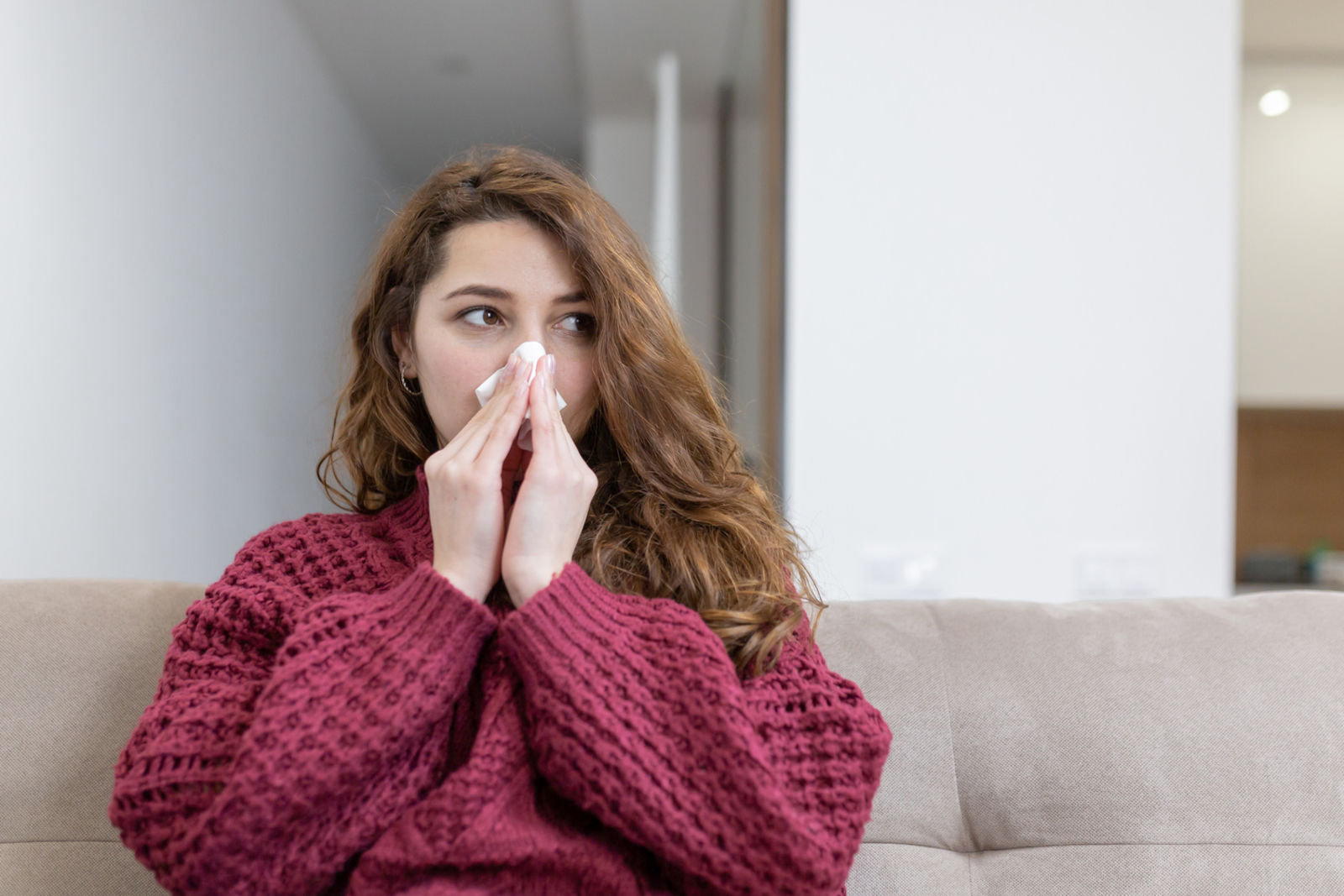
5 Common Triggers for Nasal Congestion
And How to Manage Them
Nasal congestion, a common ailment affecting millions, can disrupt daily life and hinder breathing comfort. Understanding the triggers behind nasal congestion is crucial for effective management. Whether it’s associated with nasal polyps, cold and flu, or sinusitis, pinpointing the cause allows for targeted solutions. In this article, we explore five common triggers for nasal congestion and provide practical tips on how to manage them.
1. Nasal polyps
Nasal polyps, non-cancerous growths on the lining of the nasal passages or sinuses, can obstruct airflow and lead to nasal congestion. To manage congestion caused by nasal polyps, treatment options may include corticosteroids to reduce inflammation or, in severe cases, surgical removal. Regular monitoring and consultations with healthcare professionals are essential to address nasal polyps effectively.
2. Cold and flu
Viral infections like the common cold and flu frequently contribute to nasal congestion. The congestion is often a result of increased mucus production and swelling of the nasal passages. Over-the-counter decongestants and nasal saline irrigation can help alleviate symptoms. Adequate rest and hydration are also vital to support the body’s natural healing process during cold and flu episodes.
3. Sinusitis
Sinusitis, inflammation of the sinuses often triggered by infections or allergies, is a prevalent cause of nasal congestion. Managing sinusitis-related congestion involves addressing the underlying cause. Nasal corticosteroids, antibiotics for bacterial infections, and saline nasal irrigation are common approaches. Identifying and avoiding allergy triggers can also play a crucial role in preventing recurrent sinusitis.
4. Environmental allergies
Allergies to environmental factors like pollen, dust mites, or pet dander can contribute to chronic nasal congestion. Avoiding allergens, using air purifiers, and implementing nasal saline irrigation can provide relief. Antihistamines may also be recommended by healthcare professionals to manage allergy-induced congestion.
5. Irritants and pollution
Exposure to environmental irritants and pollution can irritate the nasal passages and lead to congestion. Minimizing exposure to cigarette smoke, strong odors, and pollutants is essential. Using air purifiers in indoor spaces and wearing a mask in polluted environments can help reduce the impact of irritants on nasal health.
Management Tips:
- Stay hydrated:
- Adequate hydration helps thin mucus, making it easier to expel and reducing nasal congestion.
- Use humidifiers:
- Adding moisture to the air with humidifiers can soothe irritated nasal passages and ease congestion.
- Hot showers:
- Inhaling steam from a hot shower can provide temporary relief by reducing nasal congestion.
- Nasal saline irrigation:
- Regularly irrigating the nasal passages with saline solution helps clear mucus and reduce congestion.
- Elevate head while sleeping:
- Keeping the head elevated during sleep can prevent mucus from pooling in the nasal passages, reducing congestion.
Understanding the common triggers for nasal congestion empowers individuals to take proactive steps in managing this discomfort. Whether it’s nasal polyps, cold and flu, sinusitis, environmental allergies, or exposure to irritants and pollution, targeted approaches tailored to the specific trigger can provide relief. By incorporating practical management tips into daily routines, individuals can breathe easier and minimize the impact of nasal congestion on their overall well-being. Always consult with healthcare professionals for personalized advice and treatment plans based on individual health needs.


